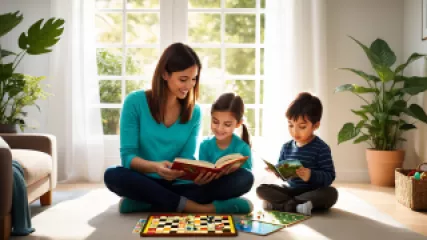10 Best Media Practices to Minimize the Impact on Children
10 Best Media Practices to Minimize the Impact on Children
As parents, we want to ensure our children grow up in a healthy, balanced environment, and that includes managing their exposure to various media. In today's digital age, where screens and devices are ubiquitous, it's crucial to establish best practices to minimize the potential negative impacts on our kids. In this comprehensive list, we'll explore 10 effective strategies to help parents navigate the complexities of media consumption and ensure their children's well-being.
1. Establish Screen Time Limits
One of the most fundamental steps in managing media exposure is setting clear and consistent screen time limits for your children. Decide on a daily or weekly quota that works best for your family, and stick to it. This not only helps reduce the amount of time spent on devices but also encourages children to engage in other activities, fostering a more well-rounded lifestyle.
2. Encourage Active, Offline Activities
Balance is key when it comes to media consumption. Make sure to prioritize and schedule offline activities that promote physical, mental, and social development. This could include outdoor play, reading, creative hobbies, family game nights, and other engaging pursuits that don't rely on screens.
3. Implement Media-Free Zones and Times
Establish media-free zones, such as the dining table or bedrooms, and media-free times, like during mealtimes or before bedtime. These designated tech-free areas and periods allow for uninterrupted family bonding, quality conversations, and undisturbed rest and relaxation.
4. Curate and Monitor Content
Carefully curate the content your children have access to, and actively monitor their media usage. Familiarize yourself with age-appropriate and educational content, and have open discussions about the themes and messages they encounter. This helps ensure that the media they consume aligns with your family's values and supports their overall development.
5. Lead by Example
Children often mimic the behaviors they observe in their parents and caregivers. Set a positive example by modeling healthy media habits, such as limiting your own device use, engaging in offline activities together, and being present and attentive during family time. This sets the tone for the entire household and reinforces the importance of balanced media consumption.
6. Encourage Creativity and Exploration
Inspire your children to explore their creative potential by providing them with alternatives to passive media consumption. Encourage them to engage in hands-on activities, such as arts and crafts, music, or coding, which foster critical thinking, problem-solving, and self-expression.
7. Foster Social Interaction and Real-World Connections
Prioritize face-to-face social interaction and real-world experiences for your children. Organize playdates, encourage participation in extracurricular activities, and facilitate family outings that allow them to connect with peers and community in a meaningful way.
8. Educate and Empower Children
Teach your children to be critical consumers of media. Discuss the potential dangers of online platforms, such as cyberbullying, misinformation, and addiction, and empower them with the skills to navigate the digital landscape safely and responsibly.
9. Collaborate with Schools and Communities
Engage with your child's school and local community to ensure a consistent approach to media management. Participate in parent-teacher discussions, support school initiatives, and collaborate with other families to create a cohesive, supportive environment that reinforces healthy media habits.
10. Regularly Review and Adjust Strategies
As your children grow and technology continues to evolve, regularly review your media management strategies and be willing to adjust them as needed. What works for a younger child may not be as effective for an older one, so stay adaptable and responsive to your family's changing needs.
Navigating the complex landscape of media and its influence on children can be a daunting task, but by implementing these 10 best practices, parents can minimize the potential negative impacts and empower their children to develop a healthy, balanced relationship with technology. Remember, the goal is not to eliminate media entirely, but to foster a controlled and enriching environment that supports your children's overall well-being.
As Gustavo Larson, a child development expert, aptly states, "The key is to strike a balance and ensure that media consumption is just one facet of a rich, fulfilling childhood, not the dominant force that shapes our children's lives." With diligence, consistency, and a proactive approach, parents can guide their children towards a future where technology enhances, rather than hinders, their growth and well-being.






